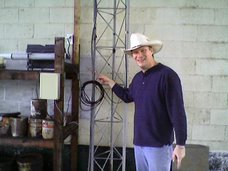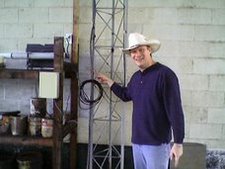
Optimizing a Slow Computer
A fast, optimized computer has noticeably better home and Internet performance. This article describes risk-free tips for a system that is behaving normally.
1) Reboot a computer that's run for several days, or if programs froze recently.
2) Keep at least 25% of each hard drive free. A drive with 10% free space will have performance problems.
3) Run the defragmenter once a month. A disk with little free space, that is also fragmented, definitely has problems. In Windows 2000: Start > Programs > Accessories > System Tools > Disk Defragmenter.
4) If your computer was low-end 2 years ago, or midrange 3 years ago, its overall design is limiting your performance. Upgrading CPU or RAM may help, but the benefit won't necessarily be worth the cost. New desktop computers with reasonable performance for many users can be purchased for well under $1000.
5) Unused programs waste memory and CPU. Don't leave them open or minimize them, shut them down.
6) Any item in Start > Programs > Startup slows your computer booting and will later drain computer resources. It's just as easy to run these programs when you need them. Typical exceptions are an anti-virus, a printer, or a gamma correction program.
7) Remove the Microsoft Office Task Bar, which runs in the background all the time. You can still run the Microsoft programs when you actually need them.
8) While screen savers are fun, they may slow programs, causing some to crash. To conserve your screen and to save energy, turn the power off, or use a power-saver feature.
Avoid "Popular" Ways to Improve Computer Performance
The Internet, Web popups, and newsgroups are full of suggestions to radically improve computer performance. Unless you plan to spend considerable, regular effort optimizing and testing your computer performance, ignore them. It's a good bet that if HP, IBM, Dell or Gateway had a sure method for increasing their computer performance at no risk and reasonable cost — they would have done it. In situations where your computer is mainly used for one thing, say, game-playing or video processing, you can probably optimize it (though at the expense of other programs' performance or features).
Windows XP users might invest a small amount of time to good advantage with Microsoft's How to Set Performance Options in Windows XP. The suggestions are relatively simple and safe, and in any case, the effects can be reversed if something goes wrong.

